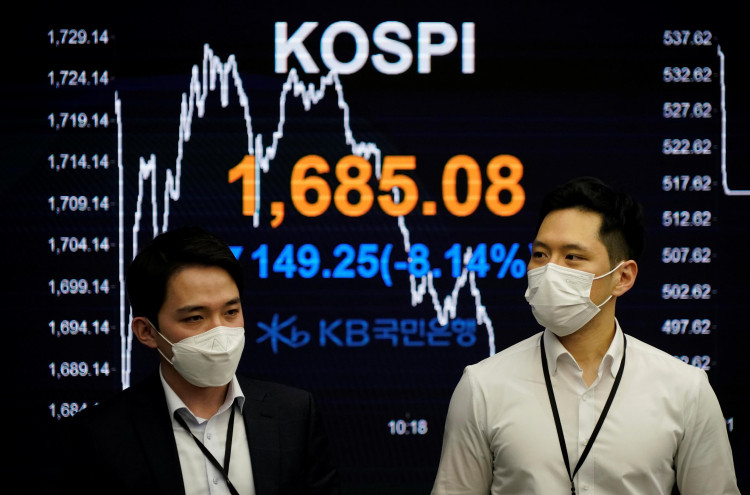Asian shares plummeted late on Monday as a growing wave of national lockdowns threatened to overwhelm the desperate attempts of policymakers to mitigate what is expected to be a major global recession.
Shares in Singapore at one point plunged 8.6 percent in the benchmark index, worse compared to its biggest single day decline during the global financial crisis of October 24, 2008.
In India, the Nifty 50 Index was down by 9.10 percent, while the Straits Times Index fell by 7.4 percent. Over in Australia, as the finance sectors largely deteriorated, the S&P / ASX 200 dropped 5.62 percent.
South Korea's markets have also declined significantly, with the Kospi Index retreating almost 4 percent. The Hang Seng index in Hong Kong likewise fell by 3.73 percent.
In a taste of the pain to come, the S&P 500's E-Mini futures fell back 6 percent at the open, and were 3.7 percent weaker by end of session. Euro Stoxxx 50 futures dropped by nearly 6 percent and the FTSE futures by 5.2 percent.
MSCI's largest Asia-Pacific share index outside Japan lost 4.4 percent, with the sector in New Zealand shedding a record 10 percent as the government closed all non-essential businesses.
The market rout came as a rising number of quarantines and border closings put a heavy load on the frenzied measures carried out by health authorities to cushion what looks to be a widespread market collapse.
Mainland Chinese stocks were also lower, with the Shanghai composite falling by 1.5 percent while the Shenzhen composite fell by 1.94 percent. A unit of Shenzhen also fell by 2.26 percent.
The Nikkei 225 in Japan regionally buckled the overall trend as it soared 1.62 percent, while the Topix index crept 0.15 percent higher. Overall, the ex-Japan index for MSCI Asia dropped by 4.51 percent.
Airlines cancelled further flights as Australia and New Zealand warned against non-essential domestic travel, the United Arab Emirates (UAE) stopped flights for two weeks and international transit passengers were barred from Singapore and Taiwan.
According to World Health Organization reports, the global coronavirus epidemic continues to spread rapidly across the world, with the number of infected now reaching approximately 294,000 and claiming more than 12,900 lives.
Meanwhile, the first reaction on Monday in currency markets was to sell those leveraged to global growth and commodity prices, bringing the Australian dollar down to $0.5749 by 0.8 percent.
The U.S. dollar started strong but after political fights in the U.S. it took a step backwards, preventing the Senate from moving on with a coronavirus response bill.






